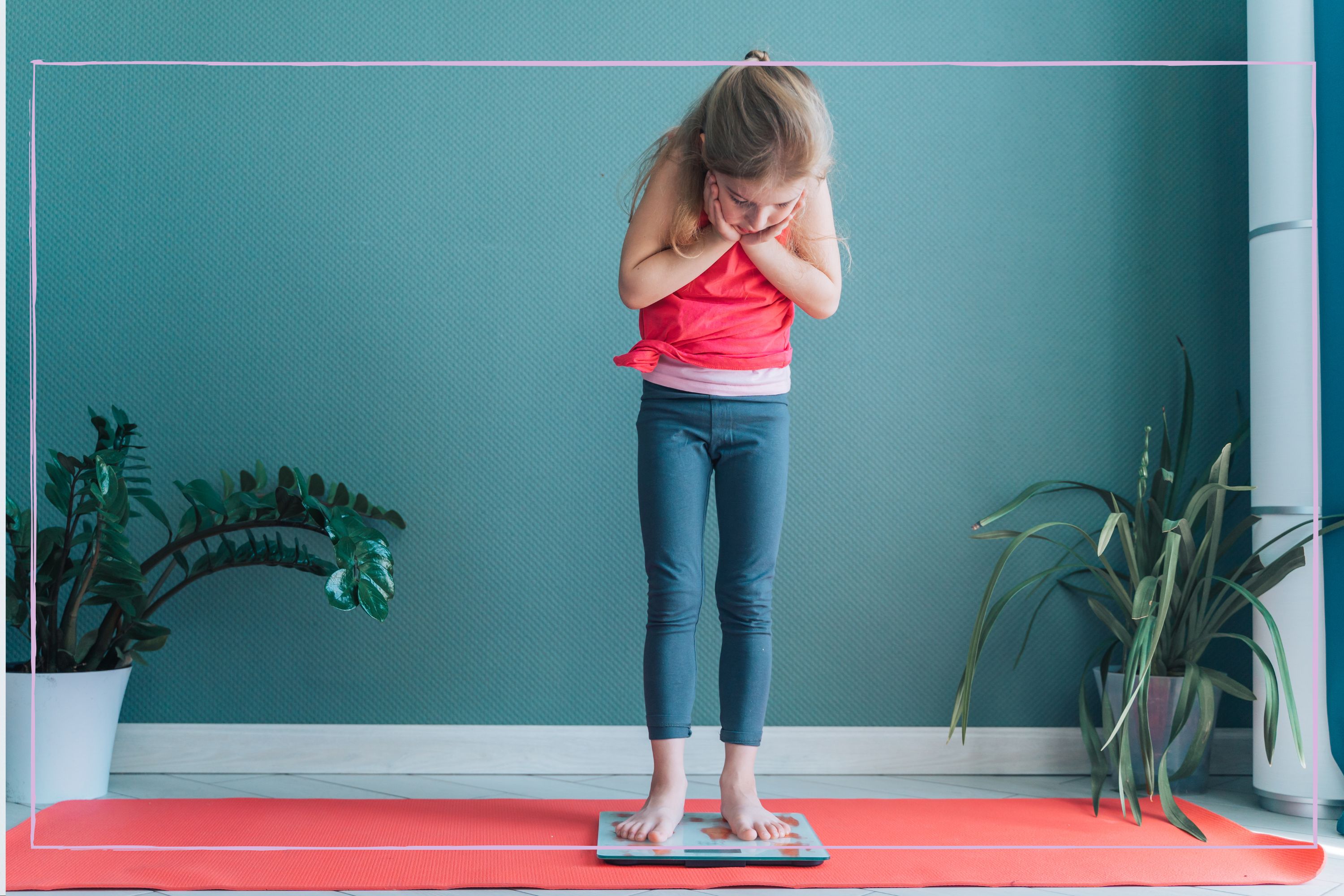
With research showing that a heartbreaking one in four kids wants to go on a diet, a parenting expert and author reveals why it's so important for children to be taught body autonomy and positivity at home and in school.
There is a huge variety of research showing the stark view many children have of their bodies. One Government report found that 66% of children feel 'negative' or 'very negative' about their body image 'most of the time' while other research by Oxford university laid bare the alarming figure that one in four eight-17 years olds are actively trying to loose weight through dieting. Alarmingly, the research suggested that many of those dieting were already a ‘healthy’ weight for their age.
It's all led to an alarming rise in in the number of children requesting support for eating disorders from the NHS and we're seeing more kids struggling at a younger age than ever before.
So what can parents do to help curb children's negative body image?
According to Molly Forbes, author of upcoming book Every Body, a new body positivity book for children that will be released on 20 June, told GoodTo.com, "Poor body image in children and young people is a systemic issue, and we need systemic solutions to fix it.
"This is not just a case of filters on social media or too much TikTok. Putting all the blame on social media and online beauty standards both makes this a more palatable issue that we can package up and 'sell' solutions to and it negates all of us from any responsibility or accountability in our role in creating environments that nurture kids' body esteem."
Forbes adds that it will take a group effort to change kids' view of their bodies, with all the adult role models in their life working to create this systemic change. "As parents, teachers, and any adults who are ever around children, I believe that one of the most empowering things we can do for kids is to help them think critically about the information they receive about bodies, which includes information about beauty standards, health and wellness, food and movement," she says.
"It's important for children to know this stuff is complicated, that grown-ups aren't always right, and that many adults don't even agree on this stuff - even doctors, teachers and their favourite social media influencers! Healthy behaviours are about doing what makes our bodies feel good, they're not about trying to look a certain way - and any behaviour that is about manipulating our body to fit a beauty standard is arguably not very healthy at all."
Opening up and having this conversation with your kids may be difficult, not least because, as Forbes points out, we don't have all the answers and it's a complicated topic, but it's worth it because you're giving your kids life skills that will help them throughout their lives, not just their childhoods.
"By helping children to think critically about this type of information, we're equipping them with media literacy skills which will also help them navigate social media and the appearance ideals they'll inevitably come across when they use these platforms," Forbes explains. "But we also need to recognise that it's on us, as adults, to create environments at home and in schools that nurture body esteem in all children."
In other family news, Have you heard of PDA in children? It's not when your child says no a lot - here’s what it actually is and tips to support, from experts. Plus, help your tween identify if a friendship is the 'right fit' with these 11 questions, approved by a child development expert. And, do you have a critical mum? Mental health experts reveal how it might impact your parenting style and share 3 top tips for ‘breaking the cycle’.






